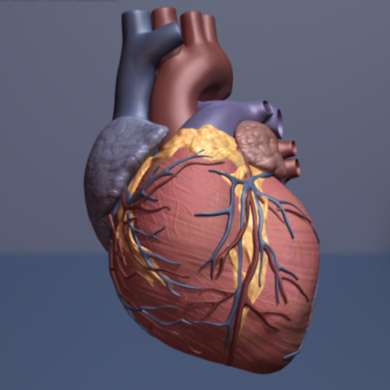Cancer linked to poor prognosis in patients with broken heart syndrome

Cancer is linked to an increased risk of death and rehospitalisation in patients with broken heart syndrome, according to research presented today at ESC Congress 2018.
Dr. Francesco Santoro, study author, University of Foggia, Italy, said: "In our study, patients with broken heart syndrome were twice as likely to die or be readmitted to hospital within three years if they had previous or current cancer than if they did not. Patients with broken heart syndrome and cancer need strict monitoring at follow-up."
Broken heart syndrome, also called takotsubo cardiomyopathy, is a type of heart failure that occurs suddenly and goes away within days or weeks. Increased levels of stress hormones are thought to be one of the main drivers.
Symptoms are similar to a heart attack and include sudden chest pain and shortness of breath. Call the emergency services if you experience these symptoms.
Around 30% of takotsubo cardiomyopathy is due to emotional triggers such as death of a spouse, anger, financial problems, or happy life events such as birthdays and weddings. Around 40% of patients have a physical trigger such as surgery, while in 30% the trigger is unknown. Prior studies have suggested that cancer may be a physical trigger.
The current study investigated the association between cancer and poor outcomes in patients with takotsubo cardiomyopathy by combining the results of three published studies on this topic in a meta-analysis. The researchers looked at adverse events that occurred while patients were in hospital with takotsubo cardiomyopathy (life threatening arrhythmias, cardiogenic shock, thromboembolism, respiratory support) as well as all-cause death and re-hospitalisation for cardiovascular disease during the first three years after discharge from hospital.
A total of 554 patients admitted to hospital with takotsubo cardiomyopathy were included in the analysis. One in five patients had previous or current cancer (113 patients; 20%). Gastrointestinal cancers were the most frequent (23%), while nervous system and urinary cancers were the rarest (3% for each). Patients who had past or existing cancer were of a similar age to those who had never had cancer.
When the researchers examined the risk of in-hospital and post-discharge adverse events together, they found that takotsubo cardiomyopathy patients with past or existing cancer had a significantly higher risk of clinical events than those without (risk ratio [RR] 1.82, 95% confidence interval [CI] 1.37-2.42, p <0.01).
When evaluated separately, the risk of events after discharge was two-fold higher in the cancer group compared to the cancer-free group (RR 2.08, 95% CI 1.50-2.87, p <0.01). There was a trend towards a higher risk of in-hospital events in the cancer group, but it was not statistically significant (RR 1.30, 95% CI 0.74-2.29, p= 0.36).
Dr. Santoro said: "We found that takotsubo cardiomyopathy patients who had ever had cancer were at greater risk of adverse events, particularly after discharge from hospital. More research is needed to clarify the reasons for this. These patients may benefit from standard therapy for heart failure, especially an angiotensin-converting enzyme (ACE) inhibitor or angiotensin receptor blocker."
More information: "Takotsubo syndrome in patients with malignancies: a meta-analysis" ESC Congress 2018.

















